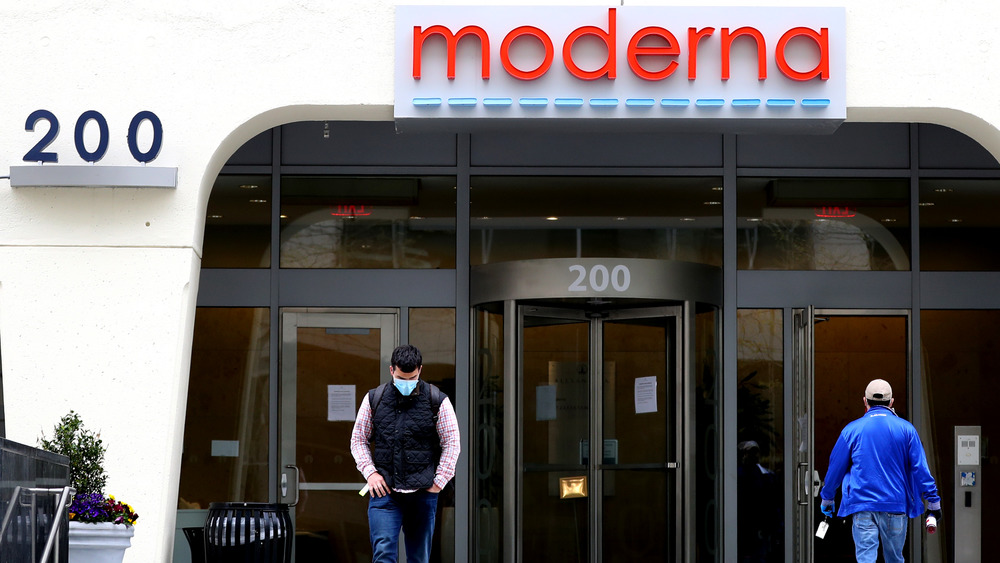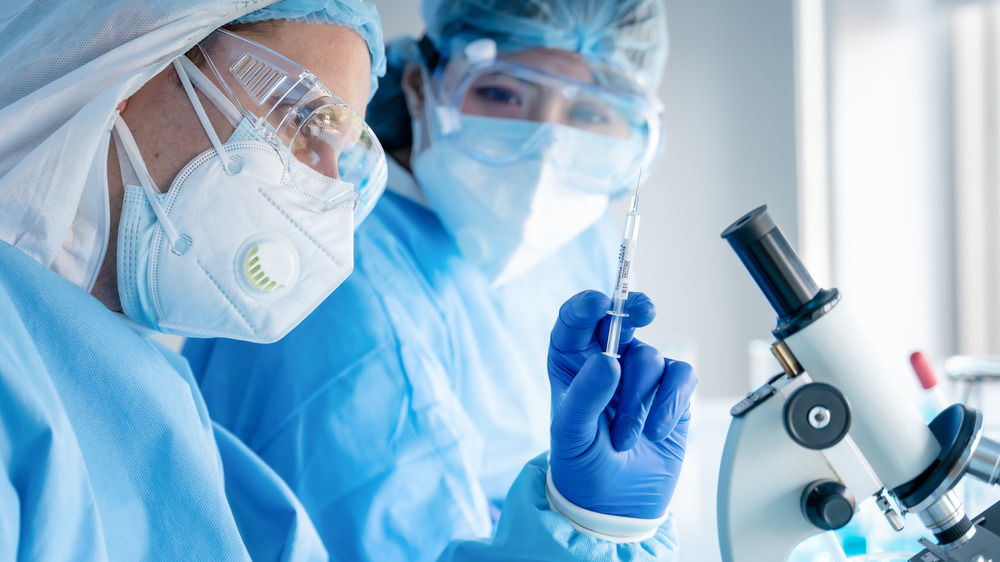How Moderna's COVID-19 Vaccine Compares To Pfizer's
The Massachusetts-based biotechnology company Moderna announced Monday that its potential COVID-19 vaccine has proven 94.5 percent effective during a trial, making it the second possible coronavirus vaccine to have a high success rate (via CNN).
Drug manufacturers Pfizer of New York City and BioNTech of Mainz, Germany last week released results from their trial of a potential COVID-19 vaccine, saying it was more than 90 percent effective in preventing the coronavirus, according to early data.
Moderna heard its results with members of the Data Safety and Monitoring Board, an independent panel analyzing the company's clinical trial data. That percentage likely will change as well as more findings are reviewed. Like Pfizer and BioNTech, Moderna plans to apply to the U.S. Food and Drug Administration for authorization to use the vaccine after it accumulates more safety data later this month.
Both potential vaccines use the same technique of delivering messenger RNA to activate the body's immune system. The results of both trials also involve small samples of data, meaning that their success rates could change in the future. The Pfizer trial involved nearly 44,000 participants, but its early data is based on only around 100 enrollees. Also, Pfizer did not initially specify whether its vaccine prevents severe coronavirus cases, whether it prevents asymptomatic cases, or how long this protection could potentially last (via Stat).
If all goes well, vaccines could begin in December
The Moderna trial involved about 30,000 participants, but its early data also is based on only about 100 people who became ill. About half of the participants received a placebo of saline; the other half received the vaccine. Over several months, only five people out of the vaccinated group developed COVID-19; none became severely ill. By comparison, 90 people in the placebo group developed COVID-19, with 11 becoming severely ill.
It's not clear how long the protection of this potential vaccine will last, nor whether it will prevent asymptomatic COVID-19. Nevertheless, health professionals such as Dr. Anthony Fauci, the nation's top infectious disease doctor, called the results "very exciting," and based on early data, the Moderna vaccine seems to help prevent severe illness, while that is currently unknown about the Pfizer vaccine.
Both potential vaccines are among 11 in late-stage trials, including four in the United States (via The New York Times). Moderna told CNN that its vaccine did not have any serious side effects; a small percentage of participants who received the vaccine experienced headaches and body aches. Scientists and clinicians have not observed any serious safety concerns among the Pfizer-BioNTech participants, whose health will be monitored for an additional two years, BioNTech said via its website.
Provided their safety and efficacy holds up, Fauci estimated that the first vaccinations could begin toward the latter part of December, prioritizing health care workers, people with underlying medical conditions, and the elderly. "I think that everybody else will start to get vaccinated towards the end of April," he told CNN.


